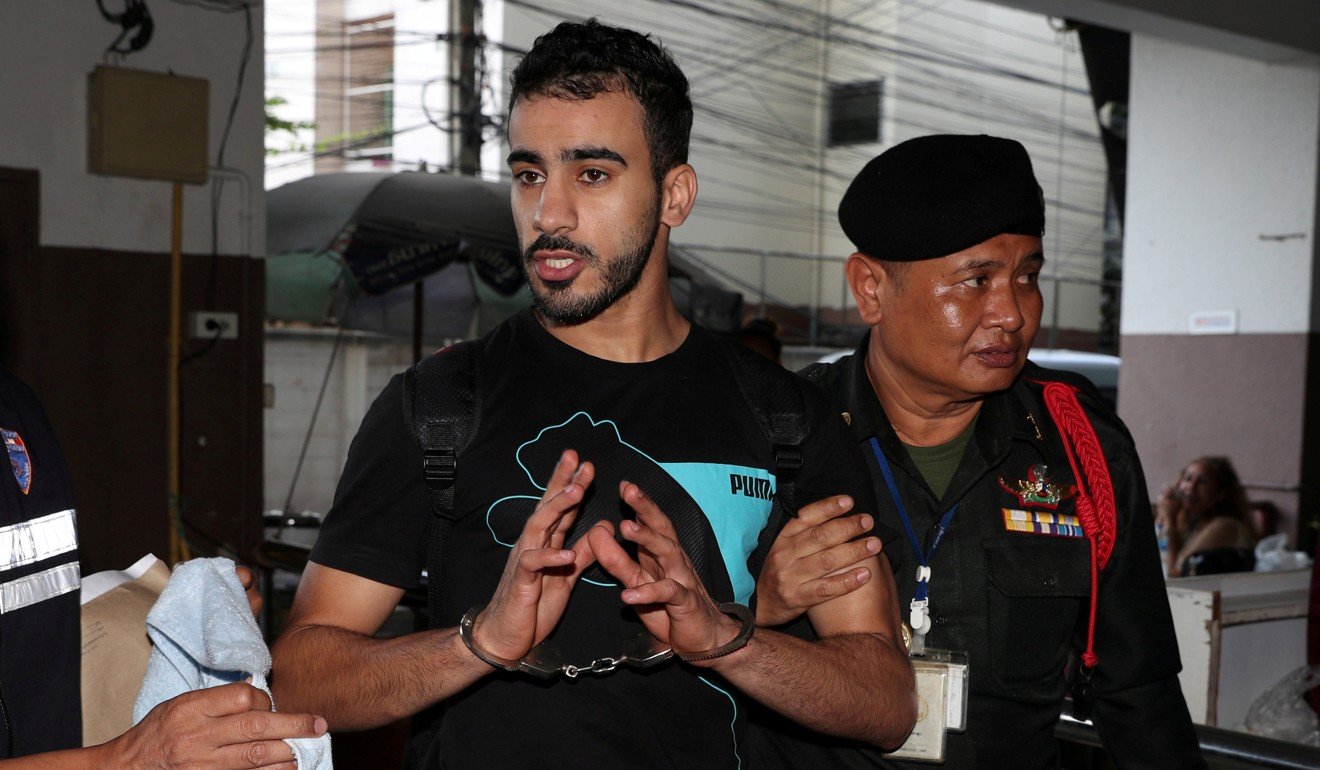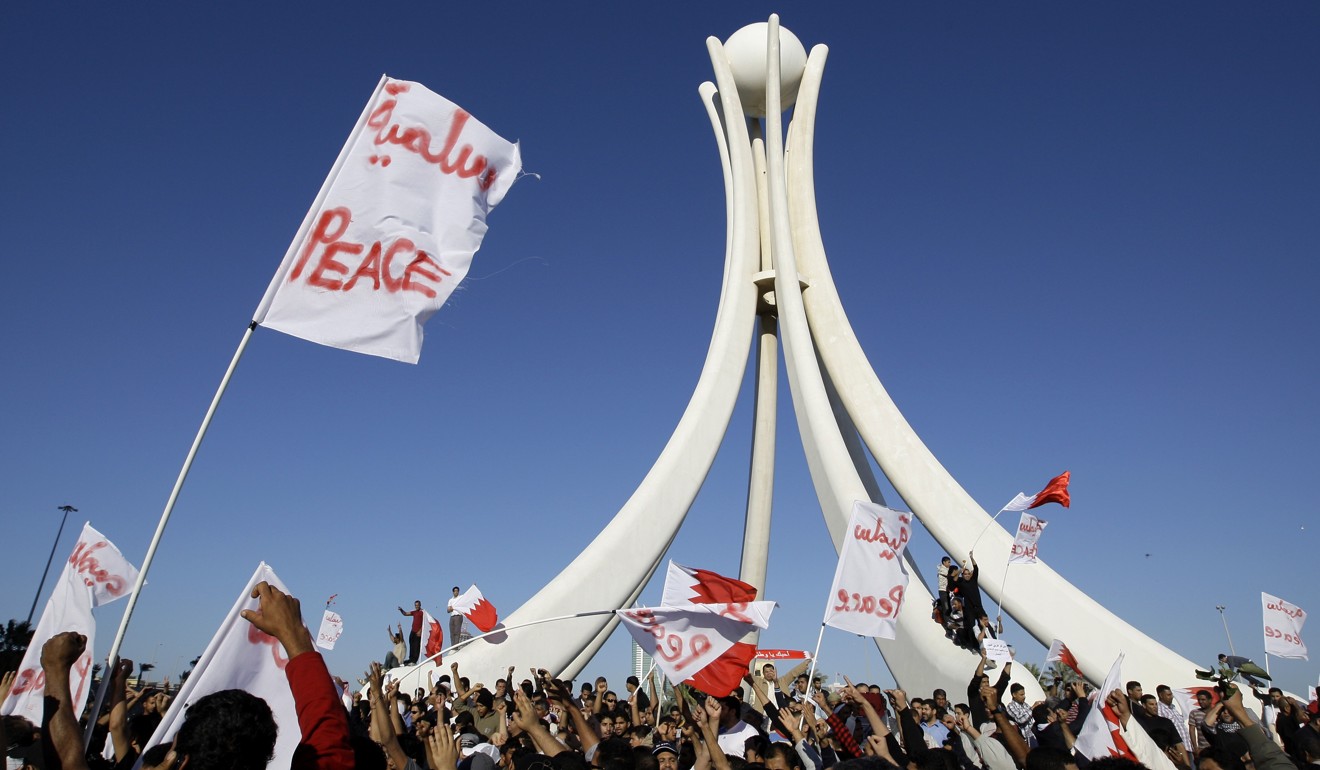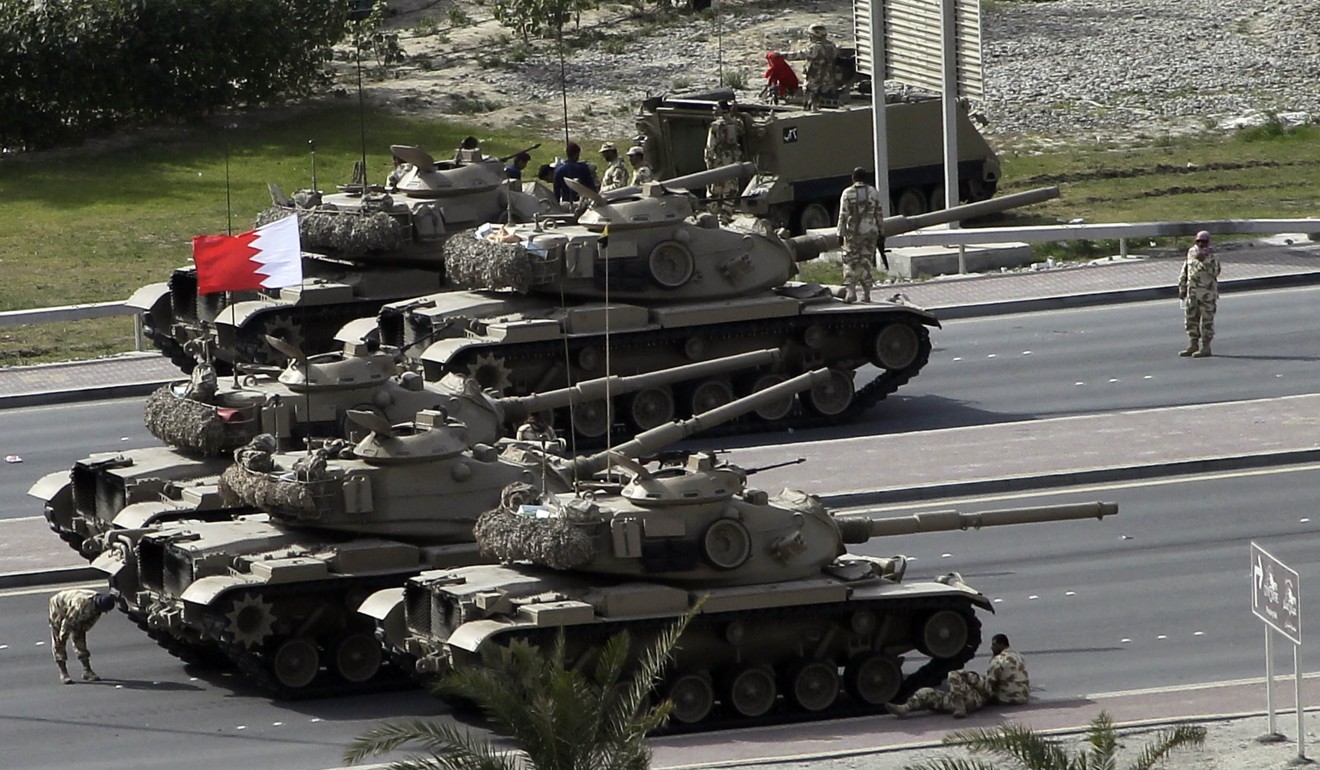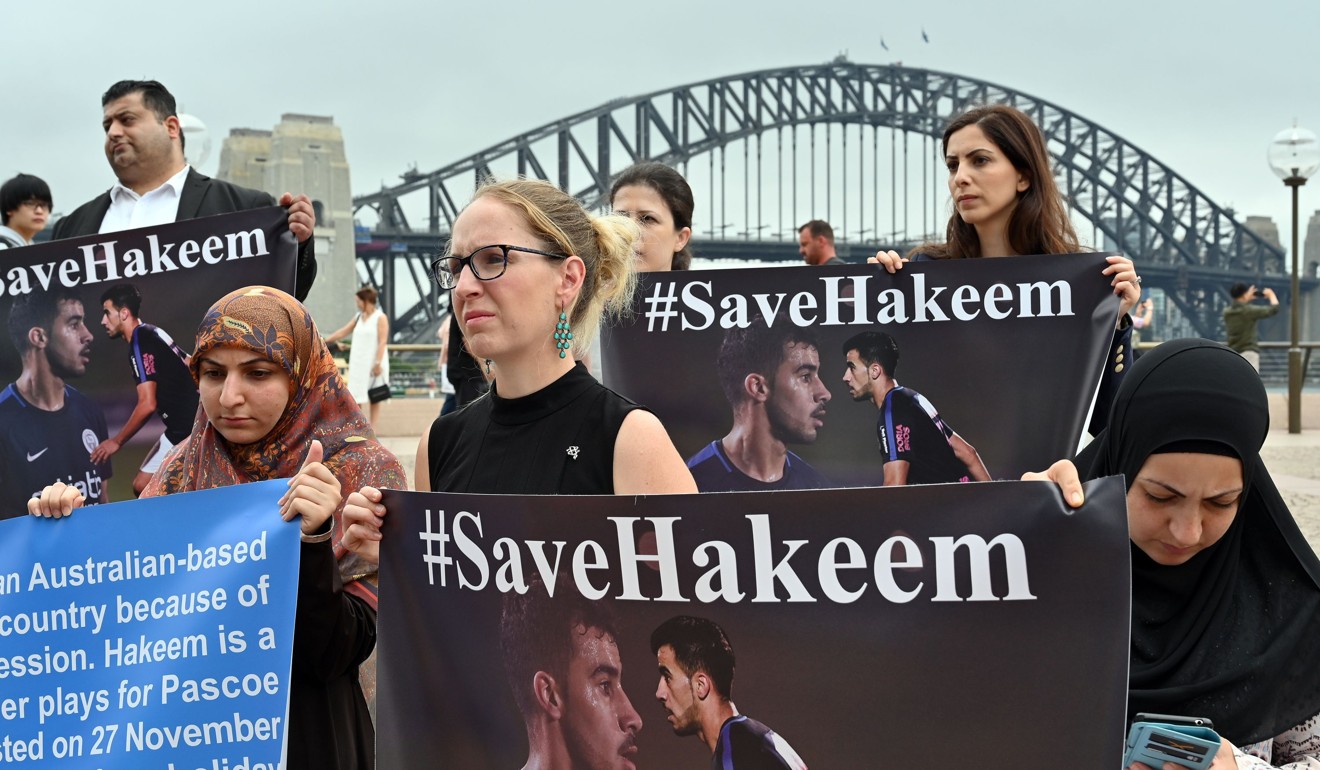
After case of Saudi runaway, Australia urges Thailand to release refugee footballer held in Bangkok since November
- Hakeem al-Araibi, who has permanent Australian residency, was detained at the request of his native Bahrain after arriving in Bangkok for his honeymoon
- The 25-year-old fled the Middle Eastern country, where he says he was falsely arrested and tortured, in 2014
Australia’s foreign minister lobbied Thai authorities on Thursday to free a refugee soccer player who has been languishing in a Bangkok jail since November.
Hakeem al-Araibi fled Bahrain in 2014 after he says he was arrested and tortured. He was granted refugee status by Australia in 2017.

“We are, as I’ve said, very concerned about his detention, very concerned about any potential for [the] return of Mr Araibi to Bahrain,” said Foreign Affairs Minister Marise Payne after meeting her Thai counterpart Don Pramudwinai and the Southeast Asian nation’s justice minister Prajin Juntong. “The Thai government is most certainly aware of the importance of this matter to Australia.”
Araibi was arrested on arrival at Bangkok, where he had gone to spend his honeymoon, over an Interpol red notice issued by his native Bahrain for an act of vandalism which he has maintains he did not commit and that happened while he was playing a televised soccer match.
The 25-year-old says that he fled the Middle Eastern country after being tortured during Arab spring protests in 2012, and that he was convicted for vandalism in absentia as retaliation. Australia has recognised him as a refugee and granted him permanent residency, but he does not yet hold citizenship.

The Interpol red notice was withdrawn following Araibi’s arrest based on his refugee status, but Thai authorities are still considering extraditing him following a request from Bahrain.
“I do know that there are legal proceedings underway and Australia will continue to be in very close contact with Thai authorities in relation to this,” said Payne, adding that officers from the Australian embassy have visited Araibi a number of times and that they are in contact with his legal team.
The director general of the Thai Ministry of Foreign Affairs’ Information Department, Busadee Santipitaks, confirmed in a press conference before the meeting that Thailand had received an extradition request, adding that the case is under the jurisdiction of the attorney general’s office.
She said Araibi’s case cannot be compared to that of Rahaf Mohammed al-Qunun, the Saudi teenager who made a desperate plea for asylum from a Bangkok airport last week and was granted refugee status by the UN following an international outcry.

“[The] cause and reasoning [of both cases] are entirely different,” she said. “[The] reason that we have … to offer assistance is based on the protection of Ms Rahaf because it is a case of domestic family [violence].”
Payne, the Australian foreign minister, said there was no time frame to make a decision on Qunun’s case.
Elaine Pearson, the Australian director of Human Rights Watch, questioned why the Thai government was spinning its wheels over Araibi when it had separately agreed to protect Qunun.
She condemned its “appalling record when it comes to collaborating with authoritarian regimes to return their citizens”, citing the deportations of Uygurs and another Bahraini dissident who was then imprisoned, beaten and tortured.
Thailand and Bahrain have close investment relationships, and the Bahrain foreign affairs minister was expected to visit Thailand soon, Pearson said.

“We are certainly concerned about why the Thai government is prioritising the relationship with the kingdom of Bahrain over its relationship with Australia,” she said.
“If Hakeem is sent back to Bahrain it means all refugees, wherever they are in the world, will live in fear about travelling to certain countries because of the risk they could be returned to the countries they fled persecution from.”
Graham Thom, refugee coordinator at Amnesty International Australia, said the spotlight was not just on Bangkok, but on Asean, which Thailand was set to become chair of this year.
“We need the global community to stand up and condemn the situation both from Thailand and Bahrain that [allowed] this to occur,” said Thom.
“This is an extraordinary situation, it would be an extraordinary breach of Thailand’s human rights obligations [if he were returned].”

The world football body, Fifa, issued another press release on Thursday calling for “a humane and speedy resolution of the case” and Araibi’s release.
“This player, a Bahrain national, is currently being detained in prison in Thailand awaiting the outcome of extradition proceedings to Bahrain, where he was previously convicted of a criminal offence, the validity of which he strongly contests,” it said.
It followed revelations that Fifa and executives from Football Federation Australia had met with Asian Football Confederation president and Bahraini royal, Sheikh Salman al-Khalifa, to discuss al-Araibi’s case.
Bahrain, which is a close ally of Britain and hosts the US navy’s Fifth Fleet, has been the scene of a low-level insurgency ever since a failed uprising inspired by 2011’s Arab spring. It has been ruled by a Sunni Muslim royal family for hundreds of years, despite most of the population being Shia Muslim.
Additional reporting by Reuters and The Guardian

